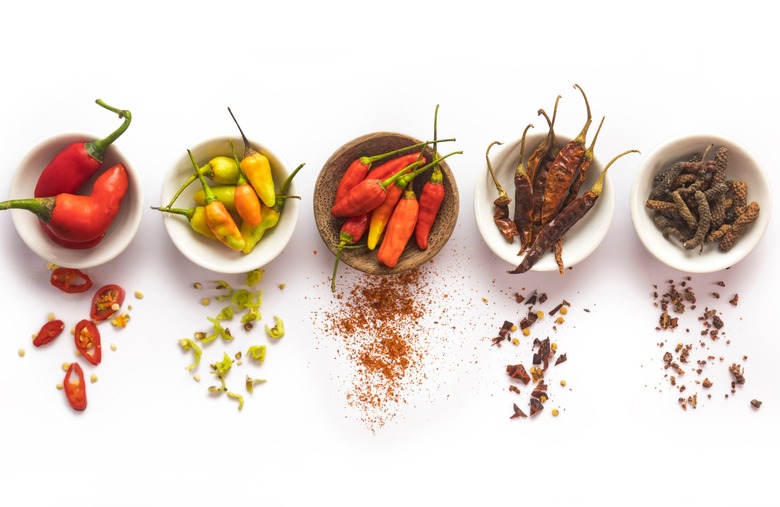Why Does Spicy Food Feel Hot?
If you've ever had delicious Mexican street food, eaten a big platter of Buffalo wings or been to an Indian restaurant, you're more than familiar with the experience of getting a runny nose, watery eyes, burning tongue and even sweating that comes with eating spicy food. But why does your body get so heated up and your tongue burn from spicy foods even when they're at room temperature or cold?
How to Marie Kondo Your Spice Drawer: What to Keep and What to Toss
The answer is pretty simple: capsaicin. An active component in spicy foods, capsaicin is an irritant. When you eat spicy food, capsaicin binds to receptors in your mouth (known as VR1 receptors) that are actually meant to detect heat in order to prevent you from burning your mouth. Because capsaicin activates these receptors, your body responds the way it would if you ate something hot, and as a result, you sweat in order to cool down, your heart rate rises to increase metabolism and your nose runs and your eyes tear up in response to the irritant.
While those reactions don't exactly sound enjoyable, your body also releases endorphins, chemicals in your brain that relieve pain and increase happiness, when you eat spicy food. So if you're ever feeling down, grab a glass of milk (a far better alternative to dissolving capsaicin than water) and eat the spiciest foods you can.
